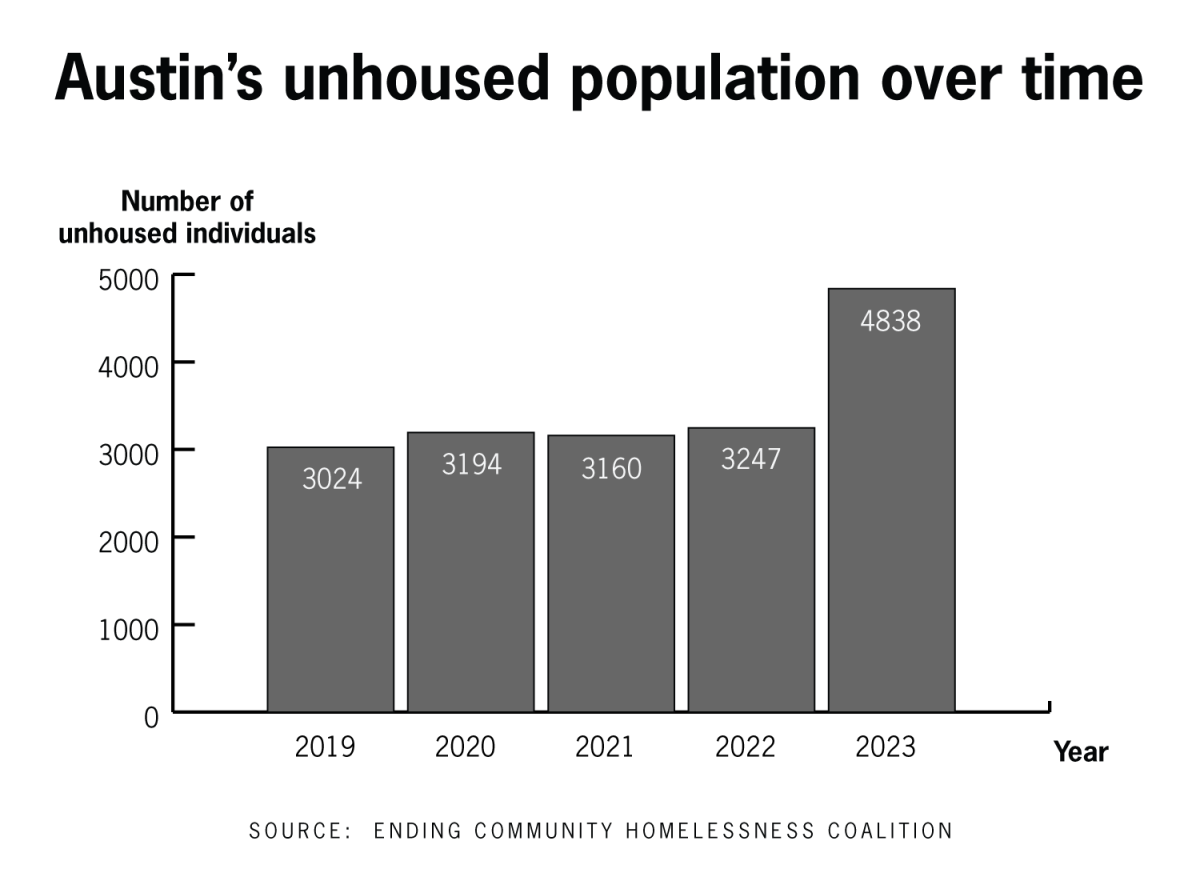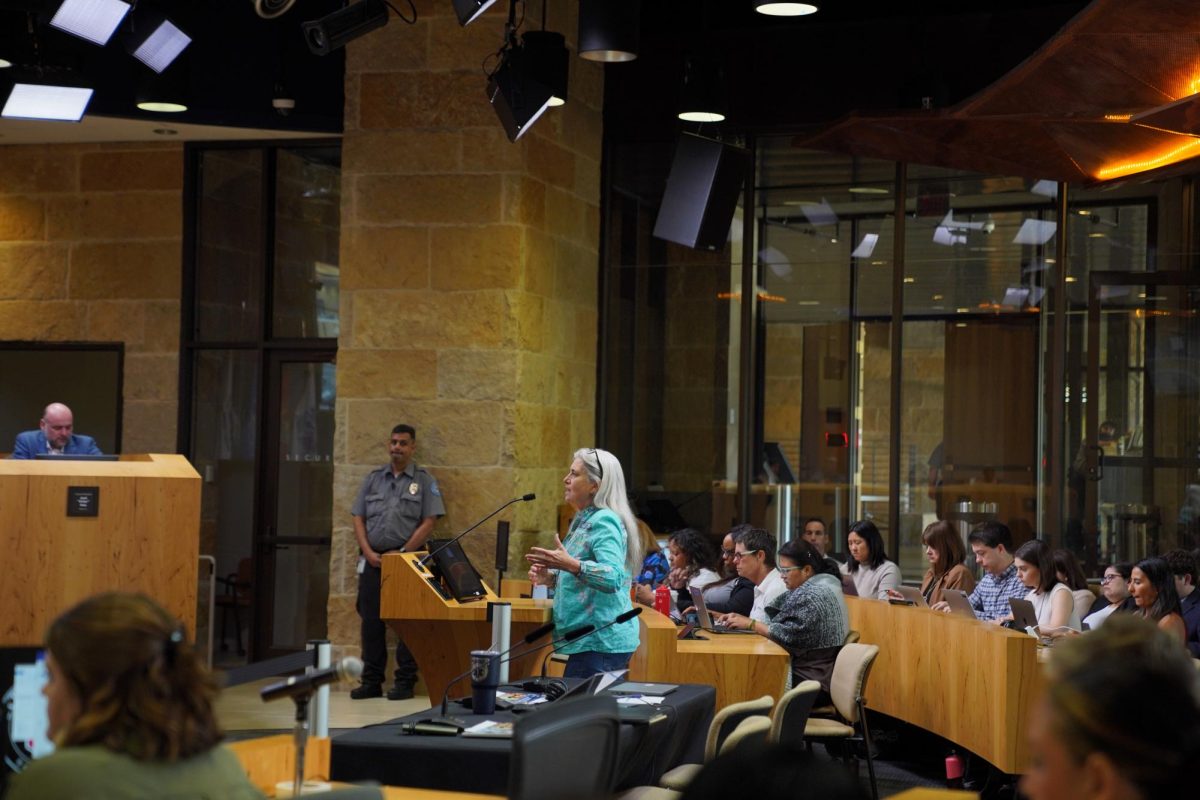Austin canceled a comprehensive study of the city’s and its partners’ solutions for addressing homelessness in the greater Austin area, Interim City Manager Jesús Garza informed the Austin City Council in a Feb. 22 memo.
The proposed study would have included Travis County, the county’s hospital district known as Central Health and mental healthcare provider Integral Care. The city planned to contract with consulting firm McKinsey & Company to complete the study. The proposed study would cost $2 million, with the different partners splitting the cost and paying different amounts, according to Item 14 of the City Council’s Jan. 18 agenda.
“Given the changes in participation among the partners, I have concluded that the conditions for the assessment have changed such that we cannot achieve the community-wide impact originally envisioned,” Garza said in the memo.
The Travis County Commissioners Court voted against joining the study at its Jan. 30 meeting. Commissioner Brigid Shea said the collaborative study would have focused on simplifying and optimizing the various partners’ homelessness programs. However, each partnering organization addresses the issue with different methods, with the city of Austin providing many services for the unhoused population, she said.
“We allocated $110 million directly to build housing for the chronically homeless, as many as 2,000 units,” Shea said. “The city said they needed 3,000 and the city said, ‘Why aren’t you participating, county?’ And we said, ‘Well, we are. Here’s how we’re stepping up.’”
Shea said the county is finalizing the contracts with the community organizations that will build the housing units, ensuring proper usage of federal grant money the county allocated to build the housing.
“That’s why (the study) didn’t make sense to us,” Shea said. “We don’t think we should have to spend almost a quarter of the entire contract to analyze something that’s not in existence yet.”
Integral Care’s board of directors approved joining the study at a Jan. 25 meeting, and the healthcare provider later learned about the city canceling the contract with McKinsey, according to an emailed statement from an Integral Care spokesperson. Integral Care focuses on housing as well, and the organization served nearly 31,000 people last fiscal year, according to a document from the spokesperson.
In a statement on X, formerly Twitter, Council Member Mackenzie Kelly said canceling the study “deeply disappointed” her. She said she’s interested in a future comprehensive review of the partners’ homelessness strategies to provide transparency and accountability for the taxpayer.
“It is imperative that we safeguard against any possible mismanagement of funds, especially for those receiving critical services,” Kelly said. “I will continue to push for an external audit and collaborate with all stakeholders to find a path forward in our shared goal of addressing homelessness effectively and compassionately.”
Shea said the court had concerns over the county’s $400,000 price tag, especially considering the city wanted to contract with McKinsey. She alleges the consulting firm has a long history of ethical concerns, including simultaneously consulting the Food and Drug Administration and Purdue Pharma.
“We should not be doing business with a company that has such a disgraceful record of unethical behavior and profound conflicts of interest,” Shea said.
Shea said the city has “five or six times the amount of money than the county” to allocate toward homelessness programs. She said the city also has more legal authority to administer itself, whereas the state constitution limits the county government.
“The city and the county are like brothers and sisters,” Shea said. “This was an unfortunate disagreement. … We intend to fully participate with our partners in fully examining this issue and understanding what each partner brings.”















